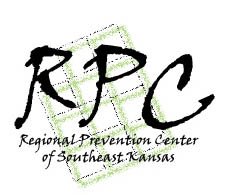After feeling the pressure from drug and alcohol prevention advocates across the country, JV Games announced that they changed the name of its WiiWare Beer Pong game to "Pong Toss" and removed all alcohol references. Prevention advocates say that while the move is a start, ultimately the game should be removed from store shelves. In addition to changing the name, JV Games changed the sound that the balls make when hitting the cups. Rather than a splash sound, it makes a rattling sound. They also changed the throw-power meter from a glass of beer to a bullet.
In May, CADCA wrote to JV Games expressing its concern that the Beer Pong game normalized binge drinking among youth, particularly those who are underage, and urged the company to either remove it from the market or give it an appropriate rating of AO for Adults Only. The game is currently rated as "T" for teens, ages 13 and up, by the independent Entertainment Software Rating Board (ESRB). Despite the changes, the Nintendo Wii game still gives players the ability to practice the tossing skills required for Beer Pong, a popular drinking game on college campuses that involves throwing ping pong balls into other players’ cups of beer so that the other players are forced to drink the cup of beer.
In fact, research from the American Psychological Association has shown that video games with violence in them can increase a person’s aggressive thoughts, feelings and behaviors, and reduce pro-social thinking and behaviors. In addition, studies show that video games can be even more harmful than violent TV shows and movies, because they are interactive. “Taking action to change the name of the game and remove any alcoholic references and intent from the original game may be considered proactive, but if underage youth identify the game with beer pong, and are at risk for engaging in risky behaviors, this may influence them to experiment with the drinking strategies of the original game,” Dr. Novince said. “Of particular concern are the rewards—the points players receive for their behavior—which may also play a role in influencing individuals to engage in actual behavior.”

The Regional Prevention Center of Southeast Kansas
Established in 1987, the Regional Prevention Center of Southeast Kansas serves the 11 counties of Southeast Kansas: Allen, Anderson, Bourbon, Cherokee, Crawford, Labette, Linn, Montgomery, Neosho, Wilson and Woodson.
The RPC works directly with local groups and individuals to mobilize communities through the Strategic Prevention Framework using data to target high risk area for youth. This information can then be used to implement new prevention services and/or make existing prevention services more available.
The RPC works directly with local groups and individuals to mobilize communities through the Strategic Prevention Framework using data to target high risk area for youth. This information can then be used to implement new prevention services and/or make existing prevention services more available.
Friday, July 11, 2008
Wednesday, July 9, 2008
Decline in Traffic Deaths Credited to Drinking-Age Laws
Raising the legal drinking age to 21 resulted in an 11-percent decrease in the number of drunk teenagers involved in fatal car crashes, according to new research from the Pacific Institute for Research and Evaluation (PIRE).
Reuters reported July 1 that the decline in alcohol-related deaths could be correlated to the passage of laws in the 1980s that barred those under age 21 from buying or possessing alcohol. They warned that recent proposals to lower the drinking age risked undoing that progress; such legislation has been introduced in at least eight states.
States that punish underage drinkers for using fake IDs had 14-percent fewer teen drunk-driving deaths than states without such laws, the researchers added.
The research, which was funded by the Substance Abuse Policy Research Foundation, will be published in the July 2008 issue of the journal Accident Analysis and Prevention.
Reuters reported July 1 that the decline in alcohol-related deaths could be correlated to the passage of laws in the 1980s that barred those under age 21 from buying or possessing alcohol. They warned that recent proposals to lower the drinking age risked undoing that progress; such legislation has been introduced in at least eight states.
States that punish underage drinkers for using fake IDs had 14-percent fewer teen drunk-driving deaths than states without such laws, the researchers added.
The research, which was funded by the Substance Abuse Policy Research Foundation, will be published in the July 2008 issue of the journal Accident Analysis and Prevention.
We Don't Serve Teens: A National Campaign to Prevent Underage Drinking
We Don't Serve Teens, a new national campaign to reduce underage drinking, is focusing on the social sources that may provide teens with access to alcohol. This website provides parents and others with information on stopping teens' easy access to alcohol, practical tips on talking to kids about alcohol and alcohol advertising, and what to say to friends and neighbors about serving alcohol to teens.
http://www.dontserveteens.gov/
http://www.dontserveteens.gov/
Subscribe to:
Posts (Atom)

